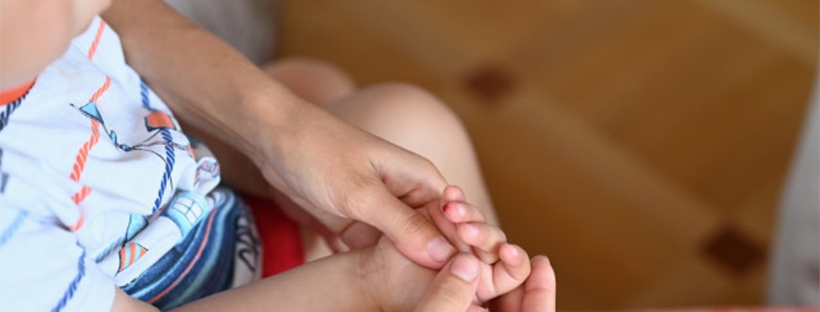Juvenile Diabetes- A first-hand account by a Mom and what she learnt after her son was diagnosed
 56054
56054

super easy
What do you know about diabetes? It is a sugar-related disease that happens to people who binge on sugar and refined flour sweets and eat unhealthily. It happens to people who are of an older age. Right? Wrong! As a mother of a young, recently-diagnosed diabetic, this is exactly what I thought too and I was so wrong. Our world was turned upside-down as our pre-teen boy fell sick and was diagnosed with Type-1 diabetes. He is a super healthy eater whose idea of a perfect snack is cucumbers or carrots. He does not over-indulge in junk food and enjoys physical activity; hence a diabetes diagnosis was shocking. We asked the doctors to re-examine, but there was no mistaking his symptoms. We didn’t even know there were different types of diabetes! As we started to learn and educate ourselves, we realized that this is something every parent should know, so they can be aware and watch out for signs in their children too, for diabetes can become life-threatening if left uncontrolled.
Signs to watch out for
- Lethargy, lifelessness, fatigue
- Frequent urination
- Lack of an appetite
- Change in pallor
- Sleepy
- Stomach ache
- Nausea
- Bedwetting
- Extreme weight loss
- Breathlessness
- Rapid heart rate
Most people and even doctors mistake these symptoms for an infection or an allergy, or a growth spurt. My child had most of these symptoms, and our pediatrician also mistook them for a growth spurt or an infection. We treated him with multi-vitamins and cold medication. The day he was admitted to the hospital, he could barely walk, was exhausted, and his breathing was very ragged. It was our doctor who suggested we take him to the ‘Emergency’ unit of the hospital. Once in ‘Emergency’, the diagnosis was almost immediate. He was a Type-1 diabetic.
Is Type1 Diabetes Hereditary?
Though most people believe that is the case, there is not enough evidence to support that Type 1 Diabetes is hereditary; It may or may not be genetic. 90% of diagnosed cases have no genetic history of diabetes. However, if you do have a diabetic family member, your children may be – to diabetes.
Type1 Diabetes/ T1D/ Juvenile Diabetes/ Diabetes Mellitus is an auto-immune disorder wherein your own body attacks the insulin-producing cells in the pancreas. Your body may be pre-disposed to this condition due to your genes; however, you may go through life without anything ever happening. All this needs to get triggered is any kind of virus. As this happens, your pancreas slowly shuts down and stops producing insulin, leading to an increase in your blood sugar. Ideal blood sugar levels are 70-120. When my son was hospitalized, his blood sugar levels were over 500, and he was in a state that is known as DKA (Diabetic ketoacidosis), but this is all information you can easily find over the internet. My aim is to let you know that you are not alone, mommy.
Could you Have Prevented it?
Don’t beat yourself up over the diagnosis. It is not your fault, and there is nothing you could have done to prevent this from happening to your child. Juvenile diabetes has nothing to do with your child’s eating habits or what you feed him. All mothers try and ensure that their child eats healthy, but nobody can say what factors lead to some children developing this disorder. You are doing the best you can, and you always will, for your child.
Tips for Healthy Snacks for Kids
Let your kids have some fun with food; healthy eating need not be boring:
Use healthy alternatives like olive oil to sauté and fry.
Switch to whole grain for dishes such as multigrain pizza, millet cakes, or ragi dosa.
Add seasonal fruits in sweet treats such as mango muffins, whole wheat pancakes with cherries, or make a delicious crumble.
Substitute cheese and mayonnaise with homemade spreads like hung-curd and hummus.
Can it be Cured?
Unfortunately, as of now, Type 1 diabetes cannot be cured or reversed, but there have been a number of advancements, and research is an on-going process. Most people confuse it with Type 2 diabetes (where the pancreas is functioning, but the body is resistant to the insulin produced) and will tell you that the right diet will help you reverse the condition. While diet is very important for a Type 1 diabetic, the condition cannot be reversed. However, it can be controlled or managed. Technology is a wonderful thing, and there are a number of devices that can make T1D manageable. A T1D patient needs to take insulin a number of times during the day. Because the body is no longer producing insulin, the insulin needs to be taken from an external source. These days insulin pens are available, which makes it a whole lot easier. Insulin pumps are even better, and you do not need to inject yourself multiple times in a day. CGMs (Continuous Glucose Monitors) are sensors attached to your body, which help you monitor glucose levels continuously, and you do not have to prick yourself to check your glucose levels.
How to Deal with the Diagnosis
It is not easy, especially for the child, but it is very important to be as positive as you can be. In this case, technology is a boon, and there are a number of support groups that you can connect with for advice and education. I have always heard that “children are very resilient”; I experienced it with my child. He took the diagnosis in his stride and has been very good at trying to keep his sugar levels under control. But he is a child, and like every other normal child, he too craves ice creams and milkshakes and maggi and burgers every once in a while. We don’t refuse him anything he craves. We try and do portion control. A shared portion or a bite or two is enough to satisfy him.
However, every child is different, and not all children take the diagnosis too well. If that is the case, try and introduce your child to other Type 1 diabetics. Nobody will understand what your child is going through better than another diabetic child. Speak to your child and explain that while some things may be different and there may be some restrictions, life can be as normal as you make it. Speak to him/ her about celebrities who are T1D such as Wasim Akram (Pakistani Cricketer), Halle Berry (American Actress), Nick Jonas (American Musician/ Actor), Sonam Kapoor (Indian Actress), Kamal Hassan (Indian Actor), and so many more.
Social Stigma
Unfortunately, in India, there is a lot of stigmas attached to diabetes, which is why I chose to write this anonymously. People believe that diabetes will somehow affect your quality of life and will place a number of restrictions on you. That is NOT true. I see my child leading a normal life. He is back to his routine and doing things he loved to do, pre-diagnosis. He plays football, tennis, table tennis, etc. He cycles and swims. He has not let the diagnosis define him, and nobody else should either. People with T1D are normal people whose bodies have stopped producing insulin, and they just need to inject it externally. But with little awareness about T1D, most people do not know that.
Support
There is a lot of help and support available to help you manage your child’s condition. Consult an endocrinologist and do not miss any appointments. Speak to a dietician/ nutritionist who specializes in diabetes management. A T1D diagnosis is not easy to deal with. It took us weeks, if not months, to accept it, and we still have our off days when we question, “Why my child?”. Speak to a mental health professional, if necessary. Your child may also need help dealing with the diagnosis. After all, he/ she is the one who has to live with it. Try not to miss any signs of depression or anxiety. Reach out and seek help, and remember you are not alone. There are many, many others just like you, who are happy to listen to you and support you.
Article By: Anonymous ( The writer did not wish to disclose her identity)





Leave a Reply